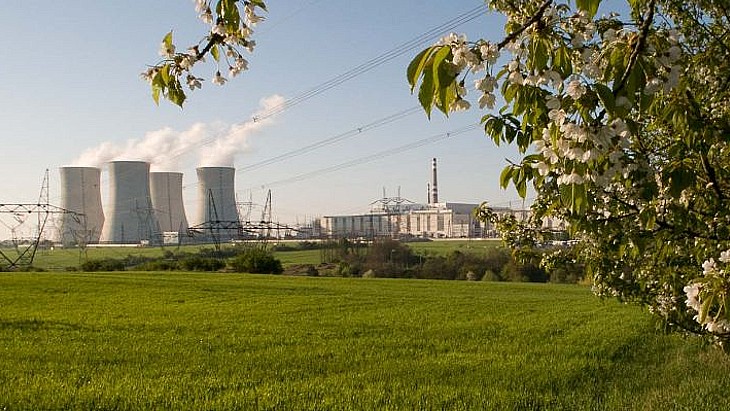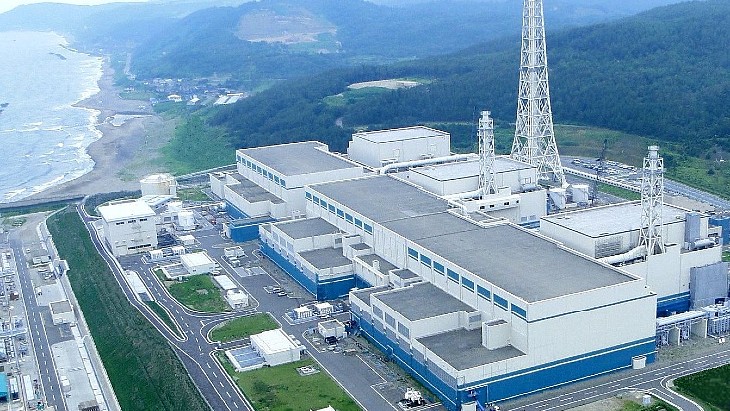The university's departments of materials science and engineering and mechanical engineering will host the two Chairs. The position of Chair in Qualification for Fusion will address fundamental engineering challenges in the qualification of components, fabricated assemblies and systems for use within future fusion power plants. The position of Chair in Fusion Materials will focus on innovation in materials design and processing to improve powerplant performance and the decommissioning and recycling of new materials developed.
Both Chairs will work closely with UKAEA staff and the University of Sheffield Nuclear Advanced Manufacturing Research Centre (Nuclear AMRC) in Rotherham, which is already collaborating with UKAEA on a range of projects to develop manufacturing technologies and supply chain capabilities for the fusion programme. UKAEA will also collaborate with the university's UK-leading research in thermal hydraulics, a key research area in the development of fusion as an energy source.
UKAEA said it has chosen to work with the University of Sheffield "because of its expertise and strong track record in materials science, engineering and manufacturing research, which are crucial for developing new low-carbon technologies".
It is expected the two positions will attract collaborations from a wider range of industrial partners who will be able to sponsor students and work in partnership with them on research projects, UKAEA noted.
"We are pleased to partner with the University of Sheffield," said Amanda Quadling, Director of Materials Research at UKAEA. "Their Department of Materials Science and Engineering has a combination of process innovation capabilities, metals performance testing and high calibre microscopy skills which will complement our post-irradiation activities. This partnership will help to address intrinsic engineering and materials challenges in order to make fusion energy commercially viable. It will also develop a pipeline of talent for the future of our thriving fusion industry."
Jim Litster, Vice-President for Engineering at the University of Sheffield, added: "Developing strong external partnerships is a key part of our Faculty of Engineering's strategy. With the university, UKAEA's Fusion Technology Facility in Rotherham and the STEP prototype fusion power plant site at West Burton, Nottinghamshire, all in relatively close proximity to one another, the partnership will develop a strong regional focus on fusion excellence in South Yorkshire and surrounding regions".
The UKAEA carries out fusion energy research on behalf of the UK government, overseeing the country's fusion programme, including the MAST Upgrade (Mega Amp Spherical Tokamak) experiment as well as hosting the JET at Culham, which is operated for scientists from around Europe. It is also developing its own fusion power plant design with plans to build a prototype known as STEP (Spherical Tokamak for Energy Production) at West Burton in Nottinghamshire, which is due to begin operating by 2040.
"Along with many other framework agreements with universities and industry partners, the agreement aims to bolster the UK's strong position in commercialising fusion energy as a major source of low-carbon electricity for the second half of this century," UKAEA said.
In late-February, UKAEA announced it had awarded contracts worth a total GBP3.1 million (USD3.8 million) to 18 organisations to focus on overcoming specific technical and physical challenges to make fusion energy a commercial reality. The contracts - feasibility studies from GBP50,000 up to GBP200,000 - are funded by the UKAEA's Fusion Industry Programme and awarded through the UK government platform Small Business Research Initiative. The selected projects aim to tackle specific challenges linked to the commercialisation of fusion energy, from novel fusion materials and manufacturing techniques through to innovative heating and cooling systems, all needed for future fusion power plants.
In early-February, a new partnership was announced between UKAEA and the University of Birmingham to develop materials with better resilience to the extreme conditions in fusion energy power plants. Under that partnership, UKAEA will also sponsor a Chair in Fusion Materials at the University.

.jpg)



_53514_33880.jpg)


_91467.jpg)





